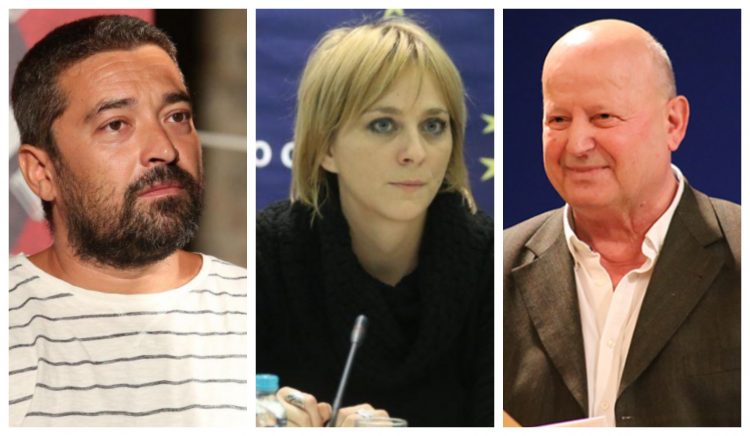
There are multiple reasons behind the dysfunctionality of the governing system in Bosnia and Herzegovina. The long-term crisis and unstable peace in this post-Yugoslav country are, according to the many, a consequence of detrimental ideologies, which have for more than a quarter of century been spiritually and materially pointing Bosnian Croats and Serbs towards official Zagreb and Belgrade, systematically and transparently. But, also, with zero resistance.
One of the major problems is the absence of the harmonized relations. We are witnessing that 26 years after the signing of the Dayton Peace Agreement, which the Bosnian Serb leaders fervidly refer to when announcing the withdrawal from the state-level institutions/agencies including the Intelligence-Security Agency, The State Investigation and Protection Agency, and others. The Bosnian Croat leaders constantly refer to the Dayton Peace Agreement as well, repeating their demand on the necessity to amend the electoral legislation so that the Croats can critically impact the election of one of three members of the Bosnian Presidency. Talks on this matter, which are mediated by the international community, have not yielded any results yet.
“It is a clash of two principles. The one according to which Bosnia and Herzegovina is exclusively a country of the constituent peoples, where each of them is entitled to equal rights regardless of its population percentage, and the other that would leave the constituent status of peoples as an ornament or would even abolish it. The fears on both sides (the Bosniak and the Croat) are reasonable in this situation. The Croats’ fear of becoming a minority, but also the fear of the Bosniaks and left-leaning citizens that two destructive figures, such as Dodik and Covic, will appear in the Presidency together,” historian Dragan Markovina told N1.
Asked how to solve the problem without further ethnic division of the country, Markovina said that this is almost impossible to achieve, adding that – regardless of final agreement – the competencies of the House of Peoples should be narrowed down to what the vital national interest truly is.
Bosnian Franciscan, university professor Mile Babic, deems that Bosnia and Herzegovina urgently needs to implement the rulings of European and local courts.
“In practice, three constituent peoples in BiH abolished collective rights of other peoples in BiH (Jews, Roma, and others). These three constituent peoples do not respect the Dayton Constitution, because the first sentence of the preamble of that Constitution reads that the Constitution is based on the respect of human dignity, freedom and equality,” said Babic, speaking to N1.
He finds it necessary that political parties, which label themselves as pro-Bosnian parties, demonstrate that with their actions, not only with words.
“They are worsening the political situation in BiH with their words, which are exclusive. Exclusivity on behalf of anything or anyone only makes thigs worse. Love for BiH must be practical, which means showing it with actions, and not only with words that have become meaningless. The approach must be inclusive and backed by argued,” added Babic.
It poses a challenge for progressive forces in BiH to communicate with everyone, regardless of religious and national identities. Communications expert at the Sarajevo Faculty of Political Sciences Belma Buljubasic emphasised that the public in BiH is divided along ethnic lines, just like everything else.
“There is a small percentage of people who do not agree with any dominant politics, but they are mostly silent because they do not dare to say anything. As soon as they speak out, they become a target of ogranised chase, both through media and on social networks,” said Buljubasic.
Bosnia and Herzegovina's prospect
The campaign for the election that – if something does not go wrong – is taking place in Bosnia and Herzegovina in 2022 will be as dirty as any before, according to analysts. But, in the years of the post-Dayton crisis’ culmination, it will provide a chance for the alternative to the hateful narratives on the political stage, not in terms of relativising but emancipatory policy, which will gather new generations under the flag of democratic and multicultural Bosnia and Herzegovina.





Kakvo je tvoje mišljenje o ovome?
Budi prvi koji će ostaviti komentar!